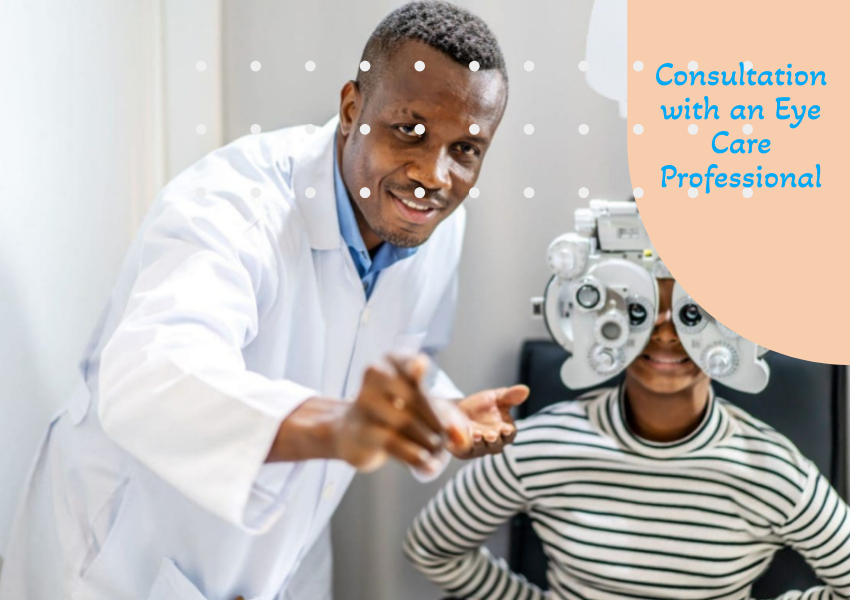In today’s fast-paced world, convenience and practicality have become paramount. Contact lenses have emerged as a popular alternative to eyeglasses, allowing individuals to engage in activities without the constraints of glasses. However, selecting the right contact lenses is crucial for ensuring optimal eye health and visual comfort.
Understanding Vision Correction
Before delving into contact lenses, it’s essential to grasp the fundamental concepts of vision correction. Refractive errors, such as nearsightedness (myopia), farsightedness (hyperopia), and astigmatism, are common causes of blurred vision. These errors arise from the shape of the cornea the clear outer covering of the eye, which prevents light from focusing correctly on the retina, resulting in distorted vision.
Soft vs. Rigid Gas-Permeable (RGP) Lenses
The two main types of contact lenses are soft and rigid gas-permeable (RGP). Soft lenses, made of flexible plastic, are the most widely used due to their comfort and ease of wear. They are ideal for individuals with mild to moderate refractive errors.
RGP lenses, on the other hand, are made of a harder, more durable material. They allow more oxygen to reach the cornea, making them suitable for individuals with severe refractive errors or corneal irregularities. However, they may require a longer adaptation period.
Spherical vs. Toric Lenses
Spherical lenses are the standard type of contact lenses designed to correct nearsightedness, farsightedness, or a combination of both. Toric lenses, however, are specifically designed to correct astigmatism, which causes irregular corneal curvature.
Daily Disposable vs. Extended Wear Lenses
Daily disposable lenses offer the utmost convenience and hygiene, as they are discarded after each use. Extended wear lenses, however, can be worn for multiple days or even overnight. While convenient, they require meticulous cleaning and care to minimize the risk of infections.
Considering Lifestyle and Needs
The choice of contact lenses should not be based solely on vision correction needs. Lifestyle factors, such as activity level, screen time, and environmental conditions, also play a significant role. For instance, individuals with active lifestyles may benefit from lenses designed for enhanced stability, while those with dry eyes may require lenses with higher moisture content.
Also read: Best Eye Drops for Dry Eyes When Wearing Contacts
Consultation with an Eye Care Professional

A comprehensive eye exam is paramount before embarking on contact lens wear. An eye care professional will assess your vision, eye health, and tear production to determine the most suitable type of contact lens for your specific needs. They will also provide detailed instructions on proper lens care and handling.
Proper Lens Care and Handling
Proper lens hygiene is crucial for preventing eye infections and ensuring optimal lens performance. Always wash your hands before handling lenses, and avoid touching the lens surface directly. Use sterile contact lens solution to clean and store your lenses, and replace them as recommended by your eye care professional.
Conclusion: A Path to Clear Vision and Comfort
Contact lenses offer a convenient and versatile solution for vision correction, allowing individuals to enjoy clear vision without the limitations of glasses. By carefully considering vision needs, lifestyle factors, and expert advice, you can navigate the world of contact lenses and find the perfect fit for your eyes, ensuring comfortable, clear, and healthy vision.
FAQs:
What are the different types of contact lenses available?
Contact lenses come in two main types: soft and rigid gas-permeable (RGP). Soft lenses are the most common type, as they are comfortable and easy to wear. RGP lenses are more durable and allow more oxygen to reach the cornea, but they may take longer to adjust.
How do I know what type of contact lens is right for me?
The best type of contact lens for you will depend on your needs and preferences. Your eye doctor can help you determine which lens type is right based on your vision correction needs, lifestyle, and eye health.
How often should I replace my contact lenses?
The frequency with which you should replace your contact lenses depends on the type of lenses you wear. Daily disposable lenses should be discarded after each use. Extended-wear lenses can be worn for multiple days or even overnight, but they should still be replaced as recommended by your eye doctor.
How do I clean and care for my contact lenses?
It is essential to clean and care for your contact lenses properly to prevent eye infections. Always wash your hands thoroughly before handling your lenses, and use a sterile contact lens solution to clean and store them. Never use tap water to clean your lenses.
What are the signs of a contact lens-related eye infection?
If you experience any of the following symptoms, you may have a contact lens-related eye infection:
Redness
Pain
Swelling
Discharge
Blurred vision
Sensitivity to light
If you experience these symptoms, you should see your eye doctor immediately.
How can I avoid contact lens-related eye infections?
To reduce your risk of a contact lens-related eye infection, follow these tips:
Always wash your hands thoroughly before handling your lenses.
Use a sterile contact lens solution to clean and store your lenses.
Never use tap water to clean your lenses.
Do not wear your lenses for longer than the recommended amount of time.
Replace your lenses as recommended by your eye doctor.
Can I wear contact lenses if I have dry eyes?
Yes, there are contact lenses specifically designed for people with dry eyes. These lenses typically have a higher moisture content than traditional lenses. Your eye doctor can help you find the contact lens for your dry eyes.
Can I wear contact lenses if I have astigmatism?
Yes, there are contact lenses specifically designed to correct astigmatism. These lenses are called toric lenses. Your eye doctor can help you determine if toric lenses are right for you.






